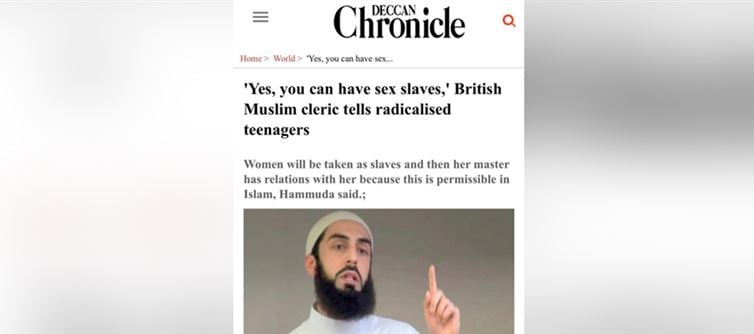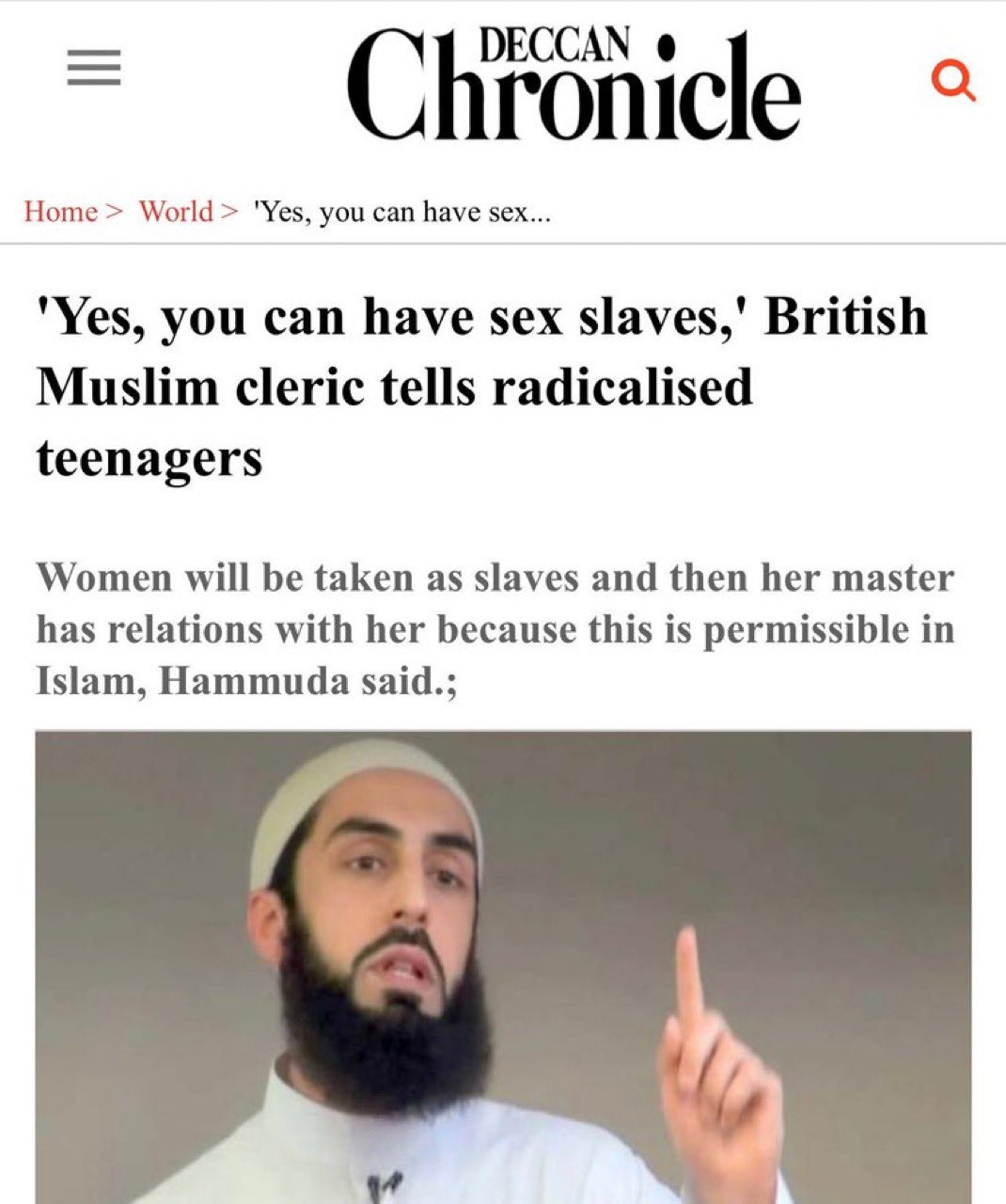
According to the Deccan Chronicle, ali Hammuda, a preacher at a mosque in Cardiff, Wales, is said to have instructed young individuals, suspected of being radicalized, that "women will be taken as slaves and then her master has relations with her because this is permissible in Islam." The report suggests that Hammuda made these remarks while influencing three youths who later traveled to syria to join the Islamic State (ISIS), a notorious terrorist organization. The image accompanying the tweet shows Hammuda gesturing emphatically, underscoring the gravity of the statement attributed to him.
 The remarks attributed to Hammuda reference a historical practice of slavery that existed in various cultures, including pre-Islamic Arabia, and continued in some form within early Islamic societies. Islamic texts, such as the Quran, mention slaves—referred to as "those whom your right hands possess"—in several verses (e.g., Surah 23:5-6 and Surah 70:30). These verses permit sexual relations with slaves under specific conditions, a practice that some scholars argue was intended to regulate and eventually phase out slavery rather than endorse it.
The remarks attributed to Hammuda reference a historical practice of slavery that existed in various cultures, including pre-Islamic Arabia, and continued in some form within early Islamic societies. Islamic texts, such as the Quran, mention slaves—referred to as "those whom your right hands possess"—in several verses (e.g., Surah 23:5-6 and Surah 70:30). These verses permit sexual relations with slaves under specific conditions, a practice that some scholars argue was intended to regulate and eventually phase out slavery rather than endorse it.Historically, slavery was a widespread institution in the 7th century, and Islamic teachings introduced reforms, such as encouraging manumission (freeing slaves) and restricting the enslavement of free individuals. However, interpretations vary widely. While some modern Muslim scholars view these verses as context-specific to their time, others, including extremists, have used them to justify contemporary acts of enslavement, as allegedly seen in Hammuda’s teachings.
The re-emergence of this story on X has elicited a polarized response. Dr. David Wood, a known critic of certain Islamic interpretations, responded with a reference to the Quran (Surah Al-Mu’minun 23:5-6), suggesting textual support for the cleric’s claims. Other users expressed alarm, with some labeling islam a "cult" that endorses violence and misogyny, while others shared provocative images and cartoons to mock or criticize the teachings.
Defenders of Islamic theology might argue that such interpretations are outliers and that mainstream islam condemns slavery today, citing the Cairo Declaration on Human Rights in islam (1990), which declares that no one has the right to enslave another. The debate on X reflects broader tensions between historical religious practices and modern ethical standards.




 click and follow Indiaherald WhatsApp channel
click and follow Indiaherald WhatsApp channel